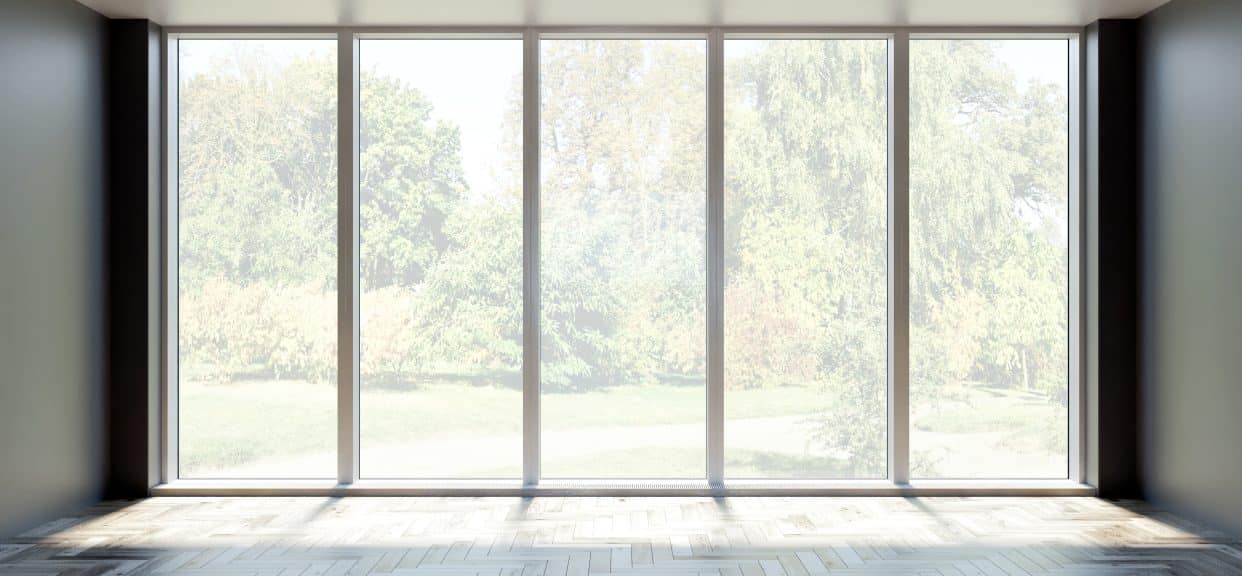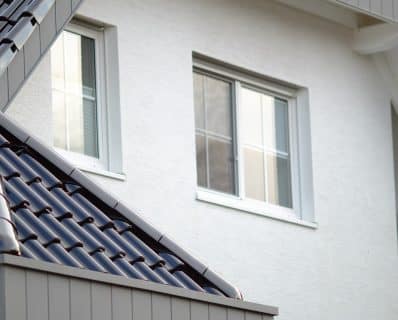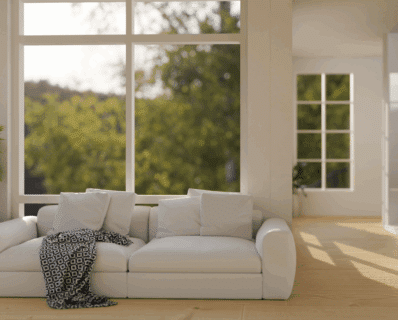Benefits of Sunlight Through Windows

Natural light streaming through windows not only brightens interior spaces but also provides multiple health advantages. The benefits of sunlight through windows encompass psychological and physical well-being enhancements.
Exposure to natural daylight can:
- Regulate circadian rhythms;
- Improve mood;
- Increase productivity.
Moreover, it serves as a source of vitamin D synthesis in the body, essential for bone health and immune function. Despite these advantages, it’s crucial to balance the intake of sunlight with considerations for energy efficiency and UV exposure.
Contents
- 1 Health Benefits of Sunlight Through Windows
- 2 Vitamin D Absorption Through Window Sunlight
- 3 Psychological Benefits of Sunlight Through Windows
- 4 Impact on Mood and Mental Wellbeing
- 5 Regulating Sleeping Patterns with Natural Light
- 6 Productivity and Focus with Natural Light
- 7 Energy Efficiency and Sunlight Through Windows
- 8 Sustainable Energy and Cost Savings through Window Sunlight
- 9 Conclusion
Health Benefits of Sunlight Through Windows
Sunlight is a natural source of vitamin D, essential for bone health. When it streams through windows, it helps the body synthesize this crucial nutrient. This process occurs when UVB rays hit the skin, starting vitamin D production.
Most people need sunlight to maintain adequate vitamin D levels. Without enough, bones can become thin and brittle. In children, severe deficiencies may cause rickets, a condition where bones weaken and deform.
Blood pressure regulation
Exposure to sunlight has surprising benefits for blood pressure management. Natural light causes the skin to release nitric oxide, a compound that relaxes blood vessels and lowers blood pressure.
Researchers have found that even indirect exposure through windows can contribute to these effects. Lowered blood pressure reduces stress on arteries and decreases the risk of heart attack and stroke.
Double lift-out slider windows enhance the overall look of the space with their sleek and adaptable design. Moreover, they also play a significant role in health by allowing natural sunlight to permeate indoor environments.
This exposure to sunlight can significantly contribute to the regulation of blood pressure.
Consequently, these windows not only brighten rooms but also support cardiovascular health through the natural benefits of sunlight.
Immune function enhancement
UV radiation from sunlight activates certain cells in the immune system. These include T cells, which play a role in immune response regulation.
Vitamin D Absorption Through Window Sunlight
Most glass windows in homes and offices block UVB rays. These are the rays needed for the skin to produce vitamin D naturally. Without direct exposure, your body cannot synthesize this essential nutrient as effectively.
However, not all is lost when you bask in sunlight through a window. While you may miss out on vitamin D production, indirect sunlight can still uplift your mood.
Mood enhancement
Indirect sunlight has a positive effect on mental health. Natural light helps regulate sleep patterns and improves overall disposition. It’s one of the reasons people feel happier in sunlit spaces.
To maintain healthy vitamin D levels, consider adding dietary sources like fish or fortified foods to your diet. Supplements are also an option if natural sources fall short.
Psychological Benefits of Sunlight Through Windows
Sunlight streaming through windows can boost mood significantly. Research shows natural light increases serotonin levels, a key hormone for feeling calm and focused. On gloomy days, sunlight from windows acts as a natural antidepressant.
People feel more energetic and alert when exposed to sunlight. It helps combat feelings of sluggishness that often accompany overcast weather. The effect is so pronounced that workplaces with ample natural light report better employee morale.
Impact on Mood and Mental Wellbeing
Natural light is a powerful mood enhancer. Studies show that sunlight has a direct impact on reducing depression rates. The reason lies in the body’s chemistry.
Sunlight increases endorphin production, which naturally elevates mood. When sunlight streams through windows, it encourages the body to release these feel-good hormones. For example, office workers with window access often report better moods than those in windowless spaces.
The amount of natural light one receives also matters. Even brief exposure can lead to significant improvements in happiness levels.
Circadian rhythms
Our bodies run on internal clocks, known as circadian rhythms. These rhythms dictate sleep patterns and overall mental health.
Natural light from windows helps regulate these cycles. This alignment leads to better sleep quality and more consistent energy levels throughout the day.
The choice of windows can significantly influence the amount of daylight that permeates an interior environment. Double-hung windows, characterized by two sashes that move vertically, offer versatility in ventilation but may have a slightly more obstructed light flow due to the presence of the sashes and frame.
In contrast, bay windows, which protrude from an exterior wall and create a bay in the room, typically consist of a large central window flanked by angled side windows; this design can capture light from multiple directions, often resulting in a brighter interior.
Bow windows are similar to bay windows but include more glass panels set at gentler angles, forming a graceful curve that allows for even greater light intake and panoramic views.
While all these window types can enhance natural light within a room, bay and bow windows generally outperform double-hung windows in terms of maximizing sunlight exposure.
A lack of sunlight can disrupt these rhythms, increasing the risk of mental health issues like insomnia or seasonal affective disorder (SAD).
- Reduced depression — sunlight influences neurotransmitters linked to mood;
- Increased happiness — endorphins released by sunlight exposure boost joyfulness;
- Regulated sleep — natural light aligns circadian rhythms for restful nights.
Ensuring rooms have ample natural light may improve mental well-being due to stabilized circadian rhythms.
Regulating Sleeping Patterns with Natural Light
Morning sunlight through windows sets the circadian rhythm. This natural process dictates sleep patterns. Early light exposure signals the brain to wake up. It prepares the body for alertness during the day.
Sunlight cues are vital for a consistent sleep cycle. They help avoid grogginess and enhance daytime energy levels.
Sleep quality
Natural light influences sleep quality at night. Bedrooms with ample daylight may contribute to better rest. Sunlit environments support deep, restorative sleep phases.
Windows play a role here by filtering in beneficial rays. The benefits of sunlight through windows extend into nighttime tranquillity.
Insomnia reduction
Exposure reduces insomnia risks significantly. A sunlit room decreases the chances of sleep disorders developing. People who get enough daylight tend to fall asleep faster at night. They also experience fewer awakenings after they doze off.
Productivity and Focus with Natural Light
Natural light streaming through windows can transform a workspace. Studies indicate that environments bathed in sunlight lead to better performance among workers. Employees in these settings often report completing tasks more swiftly and with greater accuracy.
Sunlight is proven to lessen the occurrence of eye strain and headaches. This reduction in discomfort allows individuals to concentrate on their work without frequent breaks or distractions, boosting overall efficiency.
Mental alertness
Another advantage of natural light is its impact on mental sharpness during work hours. Exposure to sunlight helps maintain high energy levels, keeping drowsiness at bay.
A well-lit room promotes an alert mindset, which is essential for tackling complex problems or engaging in creative thinking. In contrast, artificial lighting may not provide the same level of clarity and can contribute to fatigue as the day progresses.
Health benefits
The health implications of natural light cannot be overstressed.
Beyond improving focus and productivity, it also offers several physiological benefits:
- It encourages the body’s production of vitamin D;
- Sunlight has been linked with improved mood;
- There are correlations between natural light exposure and reduced stress levels.
These factors combine to create a more conducive environment for both professional success and personal well-being.
Energy Efficiency and Sunlight Through Windows
Sunlight streaming through windows cuts energy bills. Natural light reduces the need for electric lighting. Homes and offices save money this way.
Reflective surfaces bounce sunlight around rooms. They make spaces brighter without extra lights on. This is a smart design at work.
Sustainable Energy and Cost Savings through Window Sunlight
Solar gain refers to the increase in temperature in a space, object or structure that results from solar radiation. The heat produced by sunlight entering through windows can significantly reduce the need for artificial heating.
Windows designed for optimal solar gain capture warmth during colder months. This natural heat reduces reliance on conventional heating systems. Homes with well-placed windows may see lower utility bills as a result.
Proper use of curtains and blinds further enhances this effect. They trap warm air inside at night, maintaining a comfortable temperature until morning.
Daylighting Design
Daylighting is the controlled admission of natural light into buildings. It’s an essential component of sustainable design, aiming to reduce electric lighting usage.
Strategically placed windows illuminate interiors naturally. This minimizes dependence on artificial lights during daytime hours. Spaces filled with daylight create pleasant environments while conserving energy.
Incorporating reflective surfaces can amplify these benefits. They bounce sunlight deeper into rooms, reducing dark corners without additional lights.
Long-term savings
The initial cost of installing high-quality windows pays off over time. Homeowners experience significant savings from reduced electricity consumption for both lighting and heating needs.
Energy-efficient windows are investments yielding returns year after year. Smart design choices lead to long-term financial gains and environmental benefits.
But if that doesn’t convince you, there are still signs, which we’ve written about before, that it’s time to replace your windows.
Conclusion
All window types have their own unique benefits and can contribute to the regulation of circadian rhythms by allowing daylight into our lives. The role of natural light in regulating sleep cycles, boosting concentration and work efficiency, as well as its contribution to energy conservation, highlights its comprehensive significance.
HTR takes pride in delivering products that enhance living spaces while keeping customer well-being at heart. They understand the importance of natural light in home design. Our services are available all across Canada, including window replacement in Calgary, Edmonton, Winnipeg, Toronto, Vancouver,etc.













